Showing 1-10 of 67 results
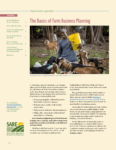
The Basics of Farm Business Planning
Sustainable farming and ranching means taking care of the land, the environment, people and the community, while the farm business makes a profit. Many farmers and ranchers choose sustainable farming and ranching as a lifestyle that reflects their values. Common goals include: Farm business planning is critical because it helps you to identify and achieve […]
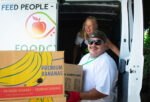
Food Loss and Waste
The United States is one of the world's largest producers of food, and yet the statistics around food waste are extreme: Food waste has been referred to as the "world's dumbest problem," but we can reverse it with both national and small-scale efforts alike. This page is dedicated to sharing the research and educational materials […]
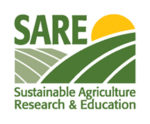
SARE Project Impacts: 2016-2023
In 2023, the SARE National Reporting, Coordination, and Communications Office (NRCCO) contracted with Insight for Action to conduct a post-project evaluation of four of SARE's regional grant programs. The purpose of the evaluation was to characterize key impacts made by SARE’s grantmaking from 2016 through 2023. The evaluation employed the Success Case Method (SCM) to […]
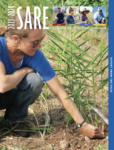
2023–2024 Report from the Field
SARE grants havehelped our viabilityas a business anddemonstrated thatsmall businessescan make a positiveimpact on theenvironment when wedevelop relationshipswith each other forthe benefit of all. Jeanine SeabrookGlass Rooster Cannery Letter from the Director I have always appreciated the value of long-term research as well as the long-term impact of both applied and basic research. The core […]
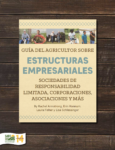
Guía del Agricultorn Sobre Estructuras Empresariales
Establecer y mantener la correcta estructura empresarial para la operación de su granja sienta las bases para un negocio agrícola estable y resiliente. La formación de una estructura empresarial puede ayudar a i) gestionar el riesgo mediante la protección de los activos de las personas propietarias ante las responsabilidades de la empresa; ii) promover las […]
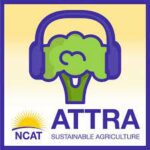
Growing New Markets for Specialty Crops
Voices from the Field is a podcast series co-produced by ATTRA and SARE that explores the different ways farmers are working to create new local markets for specialty and niche crops. Each partner episode will address a different production system or crop–from endives to small-grain value chains–and will feature farmers sharing their production and marketing […]
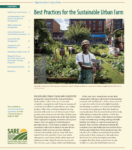
Best Practices for the Sustainable Urban Farm
For decades, urban farms and community gardens have helped meet the demand for fresh, local produce. Urban farms are diverse and adaptable, ranging from small farms on repurposed vacant lots to multilevel vertical farms and rooftop gardens. Often, they combine ecological farming practices with some form of infrastructure. Urban growers make clever use of their […]

The Peri-Urban Agriculture Network: Strategies for Agricultural Viability in Urbanizing and High-Land-Use-Pressure Regions
Many peri-urban regions in the western U.S. are in a state of acute juxtaposition between formerly rural agricultural communities and growing, modern urban centers. Urbanization challenges agricultural viability through land use pressures and a slow unraveling of historically land-based economies and culture. These agricultural circumstances can be very destabilizing and highlight the need for agriculture […]

Farm Education for the Deaf Community—Introduction (American Sign Language)
In this video, Monu introduces the video series created to provide farm education to the deaf community. The series is available in both in American Sign Language and Nepali Sign Language.

Grazing Networks for Livestock Producers
Grazing networks promote a mutual self-help approach to learning that is based on shared local experience and that provides several benefits to participants. This publication offers suggestions for finding or starting a grazing network and provides examples of the kinds of activities grazing networks might conduct. It also contains recommendations for sustaining a grazing network […]